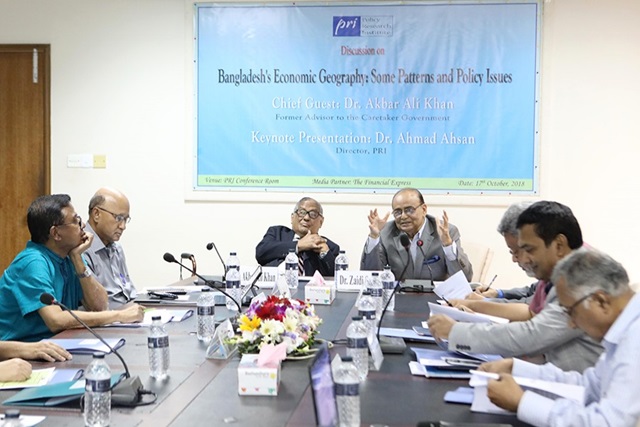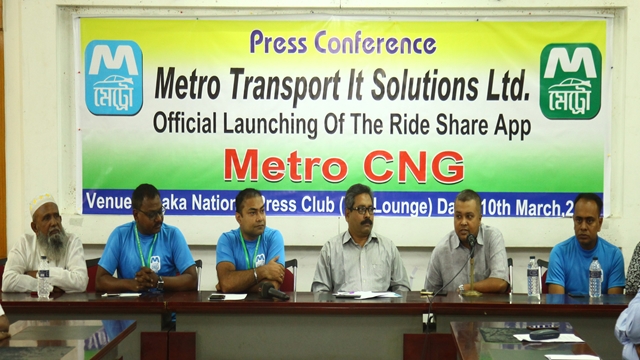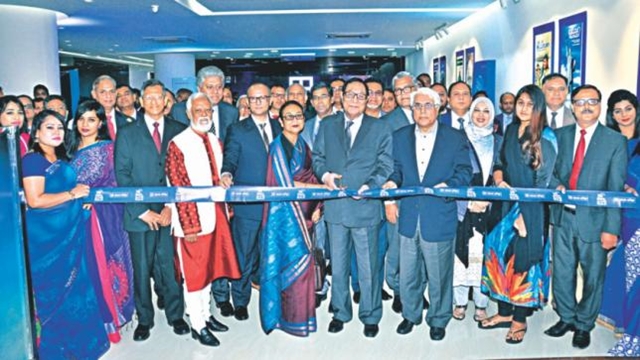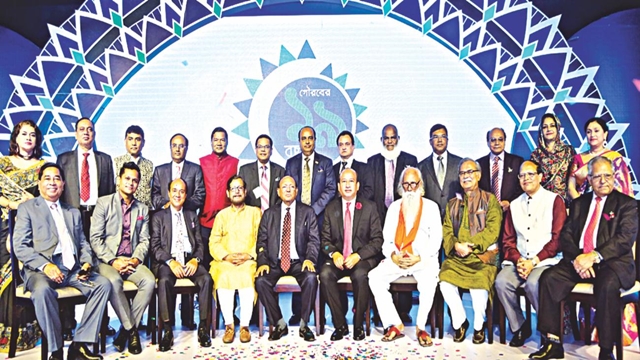SAM
Published:2018-10-18 17:57:24 BdST
Concentration of economic activities in city hurting growth
FT ONLINE
Excessive concentration of population and economic activities in Dhaka is impeding the growth of Bangladesh, experts cautioned at a seminar in the capital on Wednesday.
The country's suburban areas, including the district towns, are not creating any significant impact in supporting the economic density, suggesting major weakness in urban development, they opined.
Such observations came at a seminar titled "Bangladesh's Economic Geography: Some Patterns and Policy Issues". Leading economic think-tank Policy Research Institute of Bangladesh (PRI) organised the event.
"In Bangladesh, economic activities and urban population are excessively concentrated in Dhaka even by international standards," said PRI Director Dr. Ahmad Ahsan in his keynote presentation.
Currently, 31.9 percent of the country's total urban population lives in Dhaka, the largest city. But in China, only 3.1 percent of the total urban population lives in the country's largest city Shanghai, the PRI expert noted.
In India, the share of the largest city in total urban population is only 6.0 percent; in Indonesia, it is only 7.4 percent; in Pakistan, it is 22.6 percent; and in Vietnam, it is 22.6 percent, he added.
Such huge concentration in Dhaka city is affecting growth, urban development, non-agricultural job growth, and poverty reduction, the expert opined.
"Traffic congestion in Dhaka alone is estimated to cost about 2.5 percent of annual income or Gross Domestic Product (GDP). In addition, there are costs related to pollution, strain on water resources and utility constraints," Dr. Ahsan said.
The PRI researcher also noted that the district towns are having statistically insignificant effect on SSI and commercial density.
"And it matters, because economic density is linked to poverty reduction and expenditures through non-agricultural employment," he added.
The country's northern border belt of districts and upazillas, from Dinajpur in the north-west to Sunamganj in the north-east, is lagging behind in both consumption expenditure and economic activities, the PRI expert noted.
There are also pockets of backwardness in Chittagong Hill Tracts, Barisal islands and upazilla clusters in Khulna, he added.
Dr. Ahsan also observed that relative urban poverty levels are extremely high in Bangladesh by international standards.
While rural poverty rates declined from 35.2 percent to 26.4 percent, urban poverty reduction has decelerated sharply, falling from 21.3 percent to 18.9 percent, he noted.
Reflecting on the situation, experts at the seminar called for greater decentralisation as well as for making the local government system more autonomous and powerful.
"Why is the local government system not working in Bangladesh? Because, the governance problem is really acute," said former advisor and bureaucrat Dr. Akbar Ali Khan, who attended the programme as the chief guest.
"In Bangladesh, land is the most precious thing. But, we are not protecting our nature and agricultural land. Rather, we are misusing and wasting these. The best way to prevent such practices is effective governance."
Dr. Khan also propagated the idea of 'compact village system' to make the optimum use of rural land in the country.
"In terms of decision-making, we are becoming more and more centralised," said former finance secretary Dr. Mohammad Tareque.
"But for effective decentralisation, we need to focus more and more on upazillas," he added.
"The question is why Bangladesh is not able to develop a third or fourth city," said Research Director of Bangladesh Institute of Development Studies (BIDS) Dr. Binayak Sen.
"Even the second city Chittagong is facing deterioration in terms of expenditure growth or poverty reduction," he noted.
Research Director of PRI Dr. M A Razzaque noted that around 70 percent of the country's GDP is generated from Dhaka and Chittagong.
"In terms of manufacturing, 87 percent of the country's total output is generated from these two cities; while in terms of export, the share of Dhaka and Chittagong would be even higher."
Former finance minister M Syeduzzaman in his speech noted that although, there has been talks about introducing district budget in the recent years, no effective steps have been taken to take the initiative forward.
Chairman of PRI Dr. Zaidi Sattar also spoke on the occasion.
Unauthorized use or reproduction of The Finance Today content for commercial purposes is strictly prohibited.








